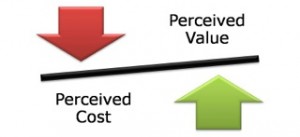“Value” Engineering?
 The old adage that you get what you pay for is no more true today than it ever has been. The one thing has always rang true is that value is the only thing that separates most competition. This is one area of our business in AV that I learned early on. Some people expect to get a Mercedes for a Pinto price.
The old adage that you get what you pay for is no more true today than it ever has been. The one thing has always rang true is that value is the only thing that separates most competition. This is one area of our business in AV that I learned early on. Some people expect to get a Mercedes for a Pinto price.
What someone is willing to pay for a good or service is classified as cost. What someone GETS for that product or service is the debate that I’d like to discuss – value. Within this category, I’ve personally witnessed what some call “engineering” when it is nothing more than a thrown together system that rarely works correctly and is in constant need of upgrade and/or is non-functional. This is becoming more and more commonplace in our industry and I for one want to see it stop!
Within our industry, I’ve noticed in many cases that people do a fairly decent job but don’t often “go the extra mile” for the customers needs. As a rep, sales manager and, most recently, a house of worship specialist, I ALWAYS made sure that I did my job to the best of my ability. That is what I expect of myself. That is what our customers and clientele expect of us. That is the standard that InfoComm, NSCA, IEEE and the AES have tried relentlessly to uphold and standardize. In recent years, the advent of the CTS, RCCD and other certifications are proving to be very valuable as a skill or marketing tool but do not always translate to value.
These are some simple suggestions that I find offer value in AV:
- Do your homework!!! Find out everything and ask questions often to do an exceptional job. I cannot emphasize this enough.
- Don’t cut corners — give the customer the best they can afford. This doesn’t mean use the cheapest pieces… rarely does that work.
- Give the customer confidence in your ability — show them what you are capable of!
- Tell the customer exactly what they are going to get — be honest.
- Follow up with the customer to make sure that you’ve done better than the minimum.
- Thank people for their business — without them, we all don’t have work or jobs.
While the list of what not to do is much longer, I believe that these are simple building blocks that we can all use everyday. Next time you get a call from a potential customer or client, be grateful they are calling you! There are certainly a lot of options and people willing to serve their needs out there… hopefully not better than you!


